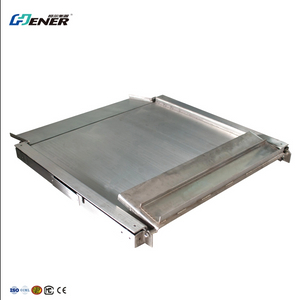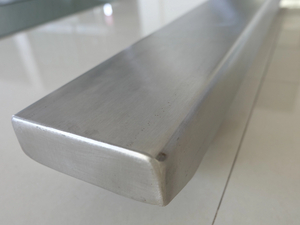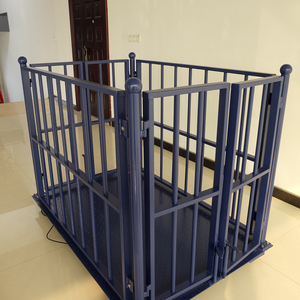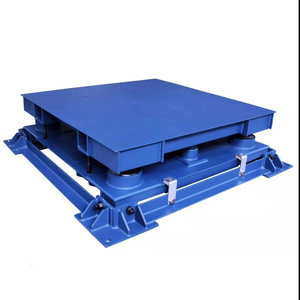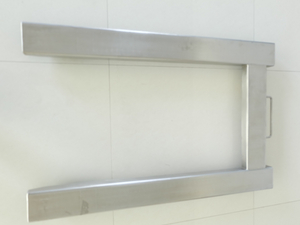
In the chemical industry, precision is paramount. The importance of accurate measurements cannot be overstated, as even the slightest deviation can lead to significant consequences in terms of product quality, safety, and regulatory compliance. Weighing scales are indispensable tools that ensure the accuracy and consistency needed throughout various stages of chemical production and analysis. This comprehensive exploration delves into the diverse applications of weighing scales in the chemical world and underscores their critical role in maintaining operational integrity and meeting stringent industry standards.
Precision in Chemical Formulation
Raw Material Measurement
Accurate measurement of raw materials is the foundation of any chemical formulation. Weighing scales are used to ensure that precise quantities of raw materials are used in the manufacturing process. This precision is essential for maintaining the consistency and quality of the final product. For example, in the production of pharmaceuticals, the accurate measurement of active ingredients and excipients is critical to ensure that the medication is effective and safe for consumption.
High-precision analytical balances are commonly used in laboratories and production facilities to measure raw materials. These scales can detect minute weight differences, ensuring that each batch of chemicals meets the required specifications. This accuracy helps prevent batch-to-batch variability and ensures that the final product consistently meets quality standards.
Solution Preparation
In the preparation of chemical solutions, accurate weighing of solutes and solvents is crucial. Weighing scales ensure that the correct concentrations of chemicals are achieved, which is vital for the effectiveness of the solution. For instance, in the preparation of buffer solutions, precise measurement of the components is necessary to achieve the desired pH level and maintain the stability of the solution.
Laboratory balances with high sensitivity are used to measure small quantities of chemicals accurately. This precision is essential for achieving the correct chemical composition and maintaining the integrity of the solution. Inaccurate measurements can lead to ineffective or unstable solutions, compromising the quality and safety of the final product.
Quality Control and Assurance
In-Process Quality Checks
Weighing scales play a vital role in quality control and assurance processes within the chemical industry. In-process quality checks involve monitoring the weight of products at various stages of production to ensure they meet specified standards. For example, in the production of specialty chemicals, scales are used to measure the weight of intermediate products to ensure that they conform to the required specifications before proceeding to the next stage of production.
Accurate weight measurements help identify deviations from the specified weight range, allowing for timely corrective actions to be taken. This ensures that the final product meets quality standards and regulatory requirements. In-process quality checks also help prevent issues such as contamination, which could compromise the safety and efficacy of the chemical products.
Laboratory Analysis
In chemical laboratories, weighing scales are essential for various analytical procedures, including titration, spectroscopy, and chromatography. High-precision balances are used to measure small quantities of samples for analytical testing, ensuring accurate and reliable results. For instance, in titration, accurate measurement of the titrant is crucial for determining the concentration of the analyte accurately.
Weighing scales also support the analysis of raw materials, intermediates, and finished products, providing critical data for quality assurance. This data helps ensure that products meet regulatory specifications and quality standards, supporting the overall integrity of the chemical supply chain.
Compliance with Regulatory Standards
Good Manufacturing Practices (GMP)
Compliance with Good Manufacturing Practices (GMP) is a fundamental requirement in the chemical industry. GMP guidelines set strict standards for the manufacturing, processing, and packaging of chemical products to ensure their quality, safety, and efficacy. Weighing scales are integral to GMP compliance, providing accurate measurements that support various aspects of the manufacturing process.
GMP guidelines require that weighing equipment be calibrated and maintained regularly to ensure accuracy and reliability. This includes performing routine calibration checks, documenting calibration records, and conducting preventive maintenance. Accurate weighing data is essential for maintaining compliance with GMP standards and avoiding regulatory violations.
Environmental Regulations
Compliance with environmental regulations is a critical aspect of chemical production. Regulatory authorities impose strict standards on the handling, storage, and disposal of chemical waste to protect the environment and public health. Weighing scales help chemical companies comply with these regulations by providing accurate weight measurements of chemical waste.
Environmental regulations often require chemical companies to document the weight and type of chemical waste generated, processed, and disposed of. Accurate weight data is essential for maintaining compliance with these requirements, ensuring that chemical waste management practices meet regulatory standards and avoiding potential fines or penalties.
Optimization of Production Processes
Batch Production
In batch production, weighing scales are used to measure and mix large quantities of chemicals accurately. This ensures that each batch is consistent with the previous ones, maintaining uniformity in product quality. Accurate measurement of raw materials and intermediates helps optimize the production process, reducing waste and improving efficiency.
Automated weighing systems are often integrated into production lines to enhance accuracy and productivity. These systems can automatically measure and dispense chemicals, reducing the risk of human error and increasing overall efficiency. By ensuring precise measurement and consistent mixing, weighing scales support the optimization of batch production processes.
Continuous Manufacturing
Continuous manufacturing is an emerging trend in the chemical industry that offers several advantages over traditional batch production. In continuous manufacturing, raw materials are fed into the production process continuously, and the final product is produced in a constant flow. Weighing scales play a crucial role in this process by providing real-time measurements of raw materials and intermediates.
Accurate weight measurements ensure that the continuous manufacturing process remains stable and consistent, producing high-quality products with minimal variability. Continuous monitoring of weights also helps detect any deviations from the specified parameters, allowing for immediate corrective actions to be taken.
Ensuring Safety and Preventing Contamination
Hazardous Material Handling
In the chemical industry, the handling of hazardous materials requires utmost precision to ensure safety and prevent contamination. Weighing scales are used to measure accurate quantities of hazardous chemicals, ensuring that they are handled and processed safely. This precision is essential for preventing spills, leaks, and accidental releases that could pose risks to workers and the environment.
High-precision balances are used in controlled environments, such as cleanrooms and laboratories, to measure small quantities of hazardous substances. These scales are designed to minimize the risk of cross-contamination, ensuring the safety and integrity of the final product. Regular cleaning and maintenance of weighing equipment are essential for preventing contamination and maintaining a safe working environment.
Safety Monitoring
Weighing scales play a critical role in safety monitoring within the chemical industry. By providing accurate weight measurements, scales help ensure that equipment operates within safe weight limits, preventing overloading and reducing the risk of accidents. For example, in chemical reactors, accurate measurement of reactants is crucial for preventing overloading and ensuring safe operation.
Safety monitoring also involves tracking the weight of chemical waste generated during production. Accurate weight data helps ensure that chemical waste is handled and disposed of safely, reducing the risk of environmental contamination and health hazards.
Supporting Research and Development
Chemical Research
Weighing scales are essential tools in the research and development (R&D) of new chemical products. During the R&D process, accurate measurement of raw materials and intermediates is critical for formulating and testing new chemical compounds. Weighing scales support various R&D activities, including synthesis, characterization, and analytical testing.
In synthesis, weighing scales are used to measure precise quantities of reactants, ensuring accurate formulation of new chemical compounds. In analytical testing, scales are used to measure sample weights for various tests, providing accurate data that supports the evaluation of new products. This precision is essential for achieving reliable and reproducible results, ensuring the success of R&D efforts.
Pilot Plant Operations
In pilot plant operations, weighing scales play a vital role in scaling up chemical processes from the laboratory to production levels. Accurate measurement of raw materials and intermediates is essential for optimizing the pilot plant process and ensuring that it can be scaled up successfully. Weighing scales provide precise data that supports process optimization and helps identify potential issues before full-scale production.
By providing accurate weight measurements, weighing scales help ensure that pilot plant operations are conducted efficiently and safely. This precision is essential for developing scalable and sustainable chemical processes that meet quality and regulatory standards.
English
العربية
Français
Русский
Español
Português
Deutsch
italiano
Nederlands
Tiếng Việt
ไทย
Polski
Türkçe
ភាសាខ្មែរ
Bahasa Melayu
Filipino
Bahasa Indonesia
Română
Čeština
Монгол
қазақ
Српски
हिन्दी
Slovenčina
Slovenščina
Norsk
Svenska
Ελληνικά
Suomi
Հայերեն
Latine
Dansk
Shqip
Hrvatski
Afrikaans
Gaeilge
Eesti keel
Oʻzbekcha
latviešu
Azərbaycan dili
Беларуская мова
Български
ქართული
guarani
Кыргызча
Lietuvių
Македонски
Malti
Soomaali
Тоҷикӣ
Türkmençe





